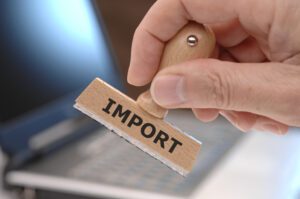
Citizens of Ukraine who left for the EU countries after the full-scale invasion of the Russian Federation, evaluate online public services in Ukraine much better (71%) than in the EU countries (16%).
As noted in the results of the “All-European survey of Ukrainians in Europe”, conducted by the sociological group “Rating” on July 4-11, financial and banking services in Ukraine will also significantly benefit (70% vs. 14% in the EU). Ukrainians also assessed the sphere of medicine better in Ukraine than in Europe: both the availability of medical services (71% vs. 21%) and their quality (60% vs. 25%).
Preschool and school education was better in Ukraine (42%) than in the EU (35%), higher education – on the contrary: slightly better in the EU (43%) than in Ukraine (32%). Ukrainian students of European universities agree more than others that higher education is better in the EU.
The absolute majority of Ukrainians surveyed agreed that public transportation is much better in the EU (77%) than in Ukraine (14%). The opinion is similar regarding European roads, which are considered better there (85%) than in Ukraine (5%). But respondents consider housing in Ukraine more affordable (57%) than in the EU (22%).
According to Ukrainians, Ukraine has a much better beauty industry than the EU (85% vs. 5%), as well as cafes and restaurants (60% vs. 16%), postal and delivery services (54% vs. 25%), online shopping (51% vs. 22%), but with regard to retail chains and stores, opinions are divided: 42% consider them the best in Ukraine, 36% – in the EU.
Ukraine loses a lot to European countries in the level of corruption, however, in terms of bureaucracy and taxation rates, at home, according to the majority, more favorable climate than in the EU. 84% of respondents believe that the level of corruption in Ukraine is higher than in the EU (3%), at the same time the level of bureaucracy is higher in the EU than in Ukraine (50% vs. 25%). Also, according to the respondents, the level of taxation is higher in Europe (59%) than in Ukraine (16%). However, by the level of economic freedom Ukraine (25%) is inferior to Europe (52%), as well as by the level of income (3% vs. 87%).
87% of respondents assessed opportunities in the EU as a whole as higher than in Ukraine, especially in income (87% vs. 3%), social security (75% vs. 15%), protection of rights and freedoms of citizens (67% vs. 19%), opportunities to live comfortably (60% vs. 26%), to find a job (54% vs. 30%). According to the respondents, it is possible to succeed both in the EU (40%) and in Ukraine (41%), but doing business is still somewhat better in Ukraine (45%) than in the EU (34%).
4% of Ukrainians have bribed an official in the host country (most often in southern Europe), the same number refused to answer.
The study anonymously interviewed 2116 Ukrainians aged 18 and older who found temporary asylum in 31 European countries after February 24, 2022 using the CAWI (Computer Assisted Web Interviewing) method. Results are weighted using current UNHC (United Nations High Commissioner for Refugees) data. The study’s representativeness error at a confidence level of 0.95: no more than 3.2%.

Under wartime conditions, medical companies are implementing services to support communication with patients.
As Anna Shved, Marketing Director of the Dobrobut Medical Network (Kyiv), reported the nurse, among such tools that the nurse is developing is the Dobrobut mobile application. With its help, a patient can make an appointment with the necessary doctor in any medical center of the network, look through the results of tests for examinations, doctors’ consultations, make an appointment for an online appointment and take it through the application, pay for services, and manage their visits, reschedule or cancel them.
In addition, the service makes it possible to upload medical documents received at other medical institutions, as well as to make an appointment not only to see a doctor, but also for tests, ultrasound, CT, MRI, and X-rays, without contacting the contact center.
The medical network is also introducing self-service terminals to get detailed information about a doctor’s visit without going to the reception desk or waiting in line.
In addition, Dobrobut is introducing online consultations through a mobile app.
“Currently, online appointments are open to more than 100 doctors in the network. The advantage is that it is a more secure channel than popular messengers. The physician can view the patient’s medical records needed for the online consultation. Communication between the patient and doctor can take place in chat, via audio or video. Adjustments to the treatment regimen, dramatic changes in health when there is no way to physically get to the doctor are the main reasons to go to the doctor online,” Shved said.
“Dobrobut is also actively using tools such as Viber and Telegram bots for patients unable to call the contact center and communicate with coordinators, for example, when they are overseas.
“In the near future, we plan to expand the functionality of this communication channel and improve its performance. Understanding the customer’s journey and expectations, we want to be where it’s convenient for them to be. Self-service is a modern trend throughout the civilized world, including in medicine. We follow this trend, the more so as the martial law environment makes us react more dynamically to new challenges and adjust to new realities”, – summarized Shved.
In his turn, general director of the CSD LAB medical laboratory (Kyiv) Oleksandr Dudin noted that in laboratory segment, digitalization is, in particular, an obligatory part of quality control and one of the factors that ensure speed of examinations and accuracy of their results.
He said that CSD LAB’s investments in IT development “have reached hundreds of thousands of dollars. The company has developed several of its own IT products, particularly a medical program for the pathomorphology lab.
“Together with Yadro Systems, we created a special program for the pathomorphology lab because there were not even slightly similar products on the market. Our software, SlidePath, helps manage workflows, which is as convenient as possible for the pathologist. And you can watch the specimen at every step,” says Dudin.
The CSD LAB director noted that it is difficult to calculate how much money the company saves through digitalization because digitalization is “about optimizing workflows, ensuring speed of analysis, and accurate reproducibility of results.”
“Our pathomorphology lab has equipment that scans histology slides and allows pathologists from anywhere in the world to examine biomaterial and establish a diagnosis,” he said.
Dudin explained that this innovation was previously used effectively by the company to get advice from international partners and the world’s leading pathologists on complex, unique clinical cases, but since the beginning of the full-scale invasion, CSD LAB has also started actively using the scanner in daily work when pathomorphologists have had to work in different parts of Ukraine.
“The ability to scan histology slides has helped to keep working on studies whose results often determine a healthy future and sometimes even the lives of our clients,” he said.
Dudin said that the process of digitalization requires significant financial investment, but “it is necessary and without the introduction of the latest digital technology, modern laboratory diagnostics is impossible.”
As reported in May 2022, the European Business Association (EBA) Committee on Healthcare stated that one of the components of the post-war reconstruction of the Ukrainian healthcare system should be full digitalization of the system, including accessible telemedicine, electronic medical records and electronic prescriptions.
MEDICAL COMPANIES, PATIENTS, SERVICES, support communication
Geographical structure of total exports of goods and services in 2021 (USD thousand)


Google has decided to maintain special conditions for Ukrainian small and medium-sized enterprises (SMEs) until the end of the war, exempting them from paying for Google Workspace, which was introduced in the rest of the world on July 1, Deputy Prime Minister and Minister of Digital Transformation Mykhailo Fedorov has said.
“Since July, Google has been introducing a paid subscription to Google Workspace, but we have agreed on special conditions for our small and medium-sized enterprises. Until the end of the full-scale war, these services will be free,” Fedorov wrote on the Telegram channel on Monday.
He also thanked Google for its regular assistance and support to Ukraine, in particular, for providing the country with $15 million in assistance and free use of Google Workspace by Ukrainian teachers, as well as donating 43,000 laptops to schools.
Google Workspace includes corporate mail, cloud storage and other services.

Services of intermediaries in wholesale trade, legal services, audit and tax consulting, services in the field of intellectual property rights, engineering, architectural and engineering services, services for the formation of documents and reporting and consulting services, services for certification of products are included in the list of critical import.
The corresponding resolution of the Cabinet of Ministers No. 673 of June 7 is published on its website.
According to him, this list also added, in particular, such services as repair of car interiors, locomotives and wagons, subscriptions to Internet platforms and other access to programs, as well as other information services, drug development services.
In addition, the list includes postal services, as well as a number of services in the field of IT and logistics.
The government also partially corrected and expanded the list of critical imports. In particular, it included bees, bumblebees, milk cheese, butter, fresh tomatoes, pasta, and a number of gluten-free products.
The updated list was replenished with refractory clay, marble, lime flux, deodorants, Portland cement, plasticine, windows, balcony doors, scrap metal and tram cars.
As reported, the list of critical imports introduced since the beginning of the war, according to the NBU, after numerous expansions, today covers about 90% of all pre-war imports of goods and about 40% of imports of services.